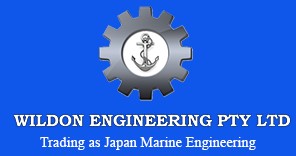4 Primary Causes of Marine Engine Failure
Blog | December 16th, 2022Ships, boats, and other marine vessels can only traverse the waters if they are equipped with a fully functional marine engine. A marine engine can turn the primary propellers of the marine vessels on, which is possible as it maximises a wide array of components. These components include a crankshaft, a camshaft, a piston, a connecting rod, and many more.
The components of a marine engine can carry out different tasks that can make the whole thing work optimally. The crankshaft, for instance, transmits power to the propeller shaft. The camshaft, alternatively, can control and operate the inlet, exhaust, and fuel injector within the engine. The piston is another marine engine component that alters the force of expanding gases into mechanical energy. The connecting rod will then take power from the piston so it can be transferred into the crankshaft.
Given the differences in their functions, they should be always in good condition. Sometimes, however, your marine engine may fail to function and work optimally. Here are the potential causes of a marine engine failure you need to know.
1. Faulty Electrical System
One potential cause of marine engine failure is the existence of a faulty electrical system. Some of the wires of your marine engine may be already loose. Without checking them before sailing, they might get damaged once your marine vessel traverses the water. Aside from loose wires, your marine engine may also boast a faulty electrical system once bilge water sprays onto your starter motor. Your marine engine’s electrical system may likewise fail once its upper helm control becomes disengaged improperly.
2. Unchecked Fuel System
Failure to check the fuel system of your marine engine can also cause the latter to fail. Your marine engine may already be out of fuel, which makes it impossible for your ship or boat to start. And one reason why you have failed to check your fuel status is due to an inaccurate fuel gauge. To prevent this problem, you must dip the tanks first before travelling. Bugs can also be the source of a faulty fuel system as they may sink to the tank bottom and clog their filters. You can turn them into a combustible product instead by applying the right treatment.
3. Unexpected Overheating
Impellers are marine engine components that can also obtain damage due to many reasons. First, the rubbish in the water may generate blockages in the intakes. Second, the broken blades of the impeller may get into the cooling system, which can only lead to more damage to the marine engine. These issues can cause overheating that must be resolved as soon as possible. Overheating may also be caused by the failure to replace the strainers regularly. Without replacing them, the debris from the water may only cause the engine to overheat.
4. Failing Battery Isolator Switch
One more cause of marine engine failure is the faulty battery isolator switch. A faulty battery isolator switch occurs as it is often exposed to spray. The switch may look fine when checked by a multimeter. However, it often cannot take any load. To resolve this issue, you may have to only replace the battery isolator switches right away. Aside from the battery isolator switch, your marine engine may also fail due to the cells dropping out of your battery. One remedy is to keep a power-pack onboard or a spare battery to keep your engine running.
If you need some help with your marine engine, you can contact us at Wildon Engineering.
Optimized by NetwizardSEO.com.au
Recent Posts
- MESON Marine Valves: A Selection Guide by System (Bilge, Ballast, Fuel & Cooling)
- Yanmar Marine Compressors: Applications in Engine Starts, Valves, and Safety Systems
- Water vs Oil in Stern Tube Bearings: The Cost & ESG Truth Shipowners Can’t Ignore
- Yanmar Turbochargers: How Correct Spec-Matching Supports Lower SFOC and Prevents Surge
- Yanmar Diesel Generators: Planned vs Predictive Maintenance Strategies for Remote Operations
- Mareflex SOLAS Marine Tapes: Safety Applications on Marine Vessels
- Yanmar Propulsion Systems: FPP vs CPP Propellers for 6EY and 6N Series Fuel Efficiency
- Mitsubishi K.K. Purifier Separator: The Key to Cleaner Fuel and Smoother Operations
- Kemel Air Seal Retrofits: Leak-Free Stern Tube Seals and Reduced Lube-Oil Risk
- Yanmar Auxiliary Generators: Sizing for Reefers, Hotel Loads, and Dynamic Positioning Systems
